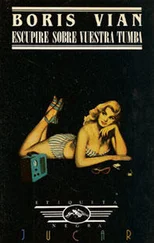The sudden and unexpected halt of the engine noise abruptly interrupted the conversation in the cabin, as if that deadly rhythm was the ritual accompaniment which until then had given impetus and inspiration to their thoughts and arguments. Now they were silent, totally mute, listening to the waves splashing at the sides of the ship, to the thud of footsteps on deck, and the prolonged scraping of heavy chains. It was after midnight when the door of the cabin was unlocked, and the three men left their quartets strewn with cigarette butts and fishbones.
THE HANDCUFFS
The Vitebsk-Ordzhonikidze dropped anchor in the open sea nine miles from Leningrad. From the cluster of distant lights on the shore, one soon separated, and grew larger, while the wind, like an advance guard, brought the noise of the boat that was approaching the ship. Three men in uniform, one with the rank of captain and the other two without insignia, approached Verschoyle and aimed their guns at him, Verschoyle put his hands up. They searched him, then tied a rope around his waist. Verschoyle compliantly went down the rope ladder and into the motorboat, where they handcuffed him to the seat. He watched the ghostly silhouette of the ship illuminated by searchlights. He saw his two companions also coming down the ladder with ropes tied around their waists. Soon all three sat side by side, handcuffed to the seat.
THE JUST SENTENCE
The true outcome of the six-day battle of words and arguments waged by the Irishman Gould Verschoyle and his two traveling companions will probably remain a secret to the contemporary researcher. It will also remain a psychological secret, and legally a most interesting one, whether it is possible for a man cornered by fear and despair to so sharpen his arguments and experience that he is able-without external pressure, without the use of force and torture-to throw into doubt all that has been developed through many years of upbringing, lectures, habit, and training in the consciousness of two ocher men, Then, perhaps, the decision of the high tribunal, which, according to some loftier justice, had pronounced the same stem sentence (eight years of imprisonment) on each of the three participants in that long game of persuasion, might not seem entirely arbitrary. For even if it is believed that the two men succeeded, through dense and exhausting ideological polemics, in dispelling certain suspicions that had appeared in the head of the Republican Verschoyle (suspicions with possible far-reaching consequences), there was a perfectly justified suspicion that the other two had also felt the fatal influence of certain counterarguments: in the merciless battle of equal opponents, as in a bloody cockfight, no one comes out unharmed, regardless of which one walks away with the empty glory of victory. [2] During the interrogation Verschoyle stubbornly denied that, on that fatal day, during his report, he had whispered into the commander's ear that coded messages were reaching Moscow, He could not have known that the interrogator had before him the report of the second-in-command in which Verschoyle's words, expressing the dangerous and sacrilegious suspicion "that Soviet secret agents are trying to usurp the leadership positions in the Republican army", were repeated verbatim. A brief encounter with the second-in-command, Chelyustnikov, at the transit station in Karaganda revealed this secret to him: the commander had informed his aide of Verschoyle's confidential declaration as if it were a good joke.
FINALE
We lose track of Verschoyle’s two companions in Murmansk, on the banks of the Baltic Sea, where for a time during the terrible winter of 1942 they lay in the same section of the prison camp's outpatient ward, half blind and wasted with scurvy: all their teeth had fallen out, and they looked like old men.
Gould Verschoyle was murdered in November 1945, in Karaganda, after an unsuccessful attempt to escape. His frozen, naked corpse, bound with wire and hung upside down, was displayed in front of the camp’s entrance as a warning to all those who dream of the impossible.
POSTSCRIPT
In the commemorative volume Ireland to Spain, published by the Federation of Dublin Veterans, the name of Gould Verschoyle is mistakenly entered among some one hundred Irish Republicans slain in the battle of Brunete. Thus Verschoyle enjoyed the bitter glory of being pronounced dead some eight years before his actual death. The famous battle of Brunete, waged bravely by the Lincoln Battalion, took place the night of July 8–9, 1938.
THE COLOSSUS
The only historical personage in this story, Edouard Herriot, the leader of the French Radical Socialists, Mayor of Lyons, member of the Chamber of Deputies, Premier, musicologist, etc., will perhaps not play the most important part. Not because (let us state at once) this part is of less importance to the story than that of the other person-unhistorical though no less real-who appears here, but simply because there are many other documents about historical personages. Let us not forget that Edouard Herriot himself was a writer and journalist, [3] Mme Recamier at ses amis, La Russie nouvelle, Ponrquoi ie suis radical socialiste, Lyons n'est plus, Forest normonde, Jadis, Souvenirs, Via de Beetboven, etc.
and a very distinguished politician whose biography can be found in any decent encyclopedia.
One source gives the following description of Herriot: "Big, strong, broad-shouldered, with an angular head covered by thick, bristly hair, a face shaped as if by a pruning knife, and cut off by a short, thick mustache, this man gave the impression of great strength. His voice, marvelous in itself and adaptable to the subtlest nuances and most modulated stresses, easily dominated any disorder. He knew how to control his facial expression." The same source gives the following description of his character; "It was a real spectacle to see him on the podium, alternating between serious and playful tones, between confidential and Jeremian proclamations of some principle. And if someone contradicted him, he accepted the little provocation; while the other expounded his views, a broad smile spread over Edouard Herriot’s face- the preliminary sign of a devastating remark, which, the moment it was spoken, provoked a riot of laughter and applause to the utter confusion of the speaker caught in the trap. That smile, it is true, would disappear if the criticism was voiced in an insulting tone. Such attacks infuriated him and provoked in him a violent reaction, the more so since he was always cautious-a sensitivity which many saw as vanity." [4] Andre Ballit in Le Monde, March 28, 1957.
THIS OTHER ONE
Of the other important person in this story, A. L. Chelyustnikov, we know only that he was about forty, tall, a little hunchbacked, blond, talkative, a boaster and womanizer and, until recently, the editor of the Ukrainian paper New Dawn. He was expert at poker and skat, and could play polkas and chastushkas on the accordion. Other testimony about him is highly contradictory and therefore perhaps unimportant, I am including it, although some of the sources are rightly suspect: he was a political commissar in the Spanish Civil War and distinguished himself in the cavalry in the battles around Barcelona; one night, despite a high malarial fever, he slept with two nurses; by trickery he brought an Irishman suspected of sabotage to the Soviet cargo ship Ordzhonikidze, under the pretext that the ship’s radio had to be repaired; he actually knew Ordzhonikidze personally; for three years he was the lover of the wife of an extremely prominent person (and for precisely this reason was sent to a prison camp); in his school’s amateur drama group in Voronezh, he played the role of Arcady in Ostrovsky’s play The Forest.
Читать дальше









